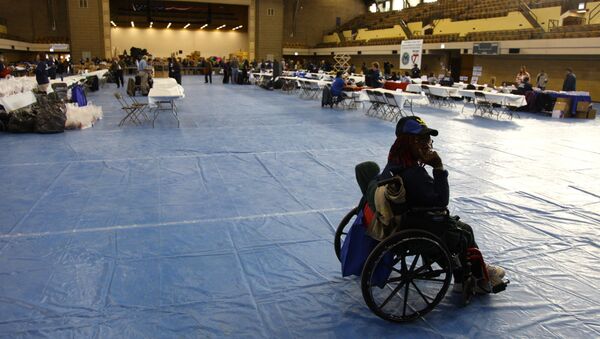The number of female veterans without a home has risen to over three thousand in 2010, compared less than two thousand in 2006, according to a report by the National Coalition of Homeless Veterans.
Nearly eighty per cent of homeless female veterans are diagnosed with mental disorders with post-traumatic stress disorder being the major health challenge. The mental condition makes it difficult for former servicewomen to reintegrate into their communities, thus increasing the risk of homelessness. Moreover, one in five women reported that they suffered from sexual abuse during their military service.
Radio Sputnik talked to Elena M. Giordano, US Navy veteran who shared her personal experience of serving in the forces.
She told Sputnik that she was only in the military for about a year, but during that time she experienced four different incidents of sexual abuse. The last one was with someone she worked with so she could not able to escape from him.
At that point, she was cautioned against reporting it to her commander. The situation was completely mishandled. She faced retaliation, ended up getting punished for what happened and was eventually discharged. When she got home she was barred from certain employment because she had a bad discharge record.
Citing the recent Pentagon report, the National Coalition of Homeless Veterans revealed that the rate of violent sexual offences against women within the military has increased by sixty four per cent since 2006. The majority of women choose not to report the abuse in fear of being ostracized by their colleagues.
"It is very difficult because most of the perpetrators are people that you work with. These are people you were told that you could trust with not only yourself but your life. So, it makes it really difficult to navigate. Of course you can do your best trying to avoid them but it is almost impossible," she explained.
"These cases should be taken out of the chain of command. You are required to report up to your chain of command, your immediate supervisor. At any point during this process, your commander can say that you are lying and you become on trial instead of your perpetrator. Obviously, common sense would be to take it out of the chain of command and have some kind of a civilian oversight committee, legally trained personnel to decide on these cases," she said.
According to the Pentagon's report, released at the start of 2017, the number of sexual assault incidents reported by service members hit a record high in 2016. Service members reported 6,172 cases of sexual assault compared with 6,082 in 2015, the US Department of Defense said in the annual report. This was a sharp jump from 2012 when 3,604 cases were reported.
An anonymous survey however found that 14,900 service members experienced some kind of sexual assault in 2016, from groping to rape, down from 20,300 in 2014, the report showed. The survey is conducted every two years.





